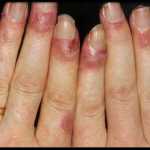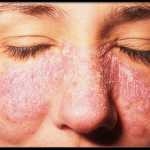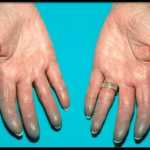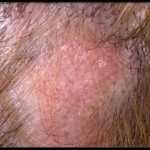Understanding and Treating Lupus
Before we list the natural alternative treatments for Lupus, it is necessary to become familiar with this autoimmune disease.
Lupus is a term used to describe a specific type of chronic autoimmune disease. Lupus sufferers have an immune system that creates antibodies to cells inside the body which ultimately results in tissue damage and inflammation in different body parts. The fact is that every body part is at risk when lupus emerges. It affects blood vessels, kidneys, joints, skin, lungs, liver, brain etc.
There are several types of lupus. The most common one is known as lupus erythematosus and comes in several subtypes – systematic, discoid and subacute lupus. Another well-known type of lupus is lupus vulgaris which represents painful skin lesions affected by tuberculosis. They usually appear on the face.

Lupus Causes and Symptoms
It is good to mention that scientists have not yet determined the exact cause of lupus. There are specialists in this field who believe that lupus comes as a result of interaction between several factors. We will mention some of these factors.
Genetics
Scientists have not yet discovered specific group of genes or single genes that lead to lupus. The truth is that lupus is present in some families, but the risk is not very high, so we cannot yet tell whether this disease is related to genetics. For instance, identical twins have 25% chances more to develop lupus compared to fraternal twins (2%).
Families with history of autoimmune diseases are at higher risk of lupus. Finally, certain ethnic and racial groups are more likely to witness the occurrence of lupus (Asians, Africans and Native Americans).
Hormones
It is also good to know that 90% of lupus sufferers are females. This is the reason why many scientists are focused on determining the link between lupus and estrogen. Women have much higher quantity of estrogen in their system and this is why they have better immune system than men (estrogen improves the work of the immune system).
Until now, there is no concrete evidence that estrogen affects the development of lupus even though some studies have shown that this hormone can manage the intensity of this disease.
Environment
Many experts suggest that agents found in the environment like viruses and Kids Spot can result in lupus, but only if the person is naturally prone to this disease (genetics). Some of these environmental agents include – ultraviolet rays produced by fluorescent light bulbs, UV rays from the sun, infections, injuries, exhaustion, sulfa drugs, smoking, stress and antibiotic drugs like penicillin.
When it comes to symptoms, lupus is characterized by many symptoms. One of the most frequent ones is fatigue. Despite the fact that some person has enough sleep and eats well, lupus may make this person feel tired all the time. If this problem is not solved it can lead to many difficulties. In addition, lupus can sometimes lead to joint pain especially in both feet and hands.
The intensity of pain is stronger in the morning. The only good news is that lupus doesn’t leave long-lasting damages to your joints. Another symptom of lupus is the frequent occurrence of rashes. These skin rashes usually appear on the hands, wrists and face.
Other (not very common) Symptoms of Lupus
- Depression
- Stomach pain
- Chest pain
- Mouth ulcers
- Fever
- Dry eyes
- Breathing difficulties
- Memory loss
- Hypertension
- Headaches
The truth is that there is no cure for lupus, but this doesn’t mean that people should accept the fact that they will live with this condition forever. There are treatments that can help lupus sufferers handle the symptoms and eventually eliminate them. It is also crucial to consult a doctor when you notice the first symptoms and signs because the treatment is simpler at this stage.
There are many different medications used for treating symptoms of lupus. As we have already mentioned different people experience different symptoms and intensity of this disease and this is why they are not treated with the same medications. An experienced doctor can recommend the adequate medication.
One of the most frequently used medications in cases of lupus is corticosteroids. They act as cortisol hormone and help the immune system fight inflammation. Hydrocortisone, cortisone and prednisone are the most used corticosteroids for this purpose.
NSAIDs ot non-steroidal anti-inflammatory drugs are effective too. They are used in cases of inflammation and pain and that’s why they are helpful. Lupus sufferers usually use naproxen, ibuprofen, celecoxib and indomethacin.
In addition, anti-infammatories, DMARDs, antimalarials and anticoagulants are some other type of medications used in cases of lupus.
The fact is that these medications provide limited effects in most patients and they also come with numerous side effects. That’s why more and more people turn to alternative treatments for lupus. Before we share the details about the alternative treatments for lupus, it is good to point out that lupus is not a form of cancer and has nothing to do with this vicious disease, so don’t try to use treatments related to cancer.
Alternative Treatments for Lupus
The symptoms of lupus can be reduced or even eliminated with some changes in our lifestyle and with some natural remedies. We will mention the most efficient ones.
1. Healthy nutrition
First of all, there is no diet specially designed for lupus because as we said, science still doesn’t have an answer to the question – what causes lupus. However, there are certain things that can definitely improve your overall condition and reduce lupus symptoms. For instance, you should include more veggies, fruits and whole grains in your diet to reduce inflammation. Lower the amount of processed foods to eliminate swelling and water retention. Use calcium supplements to fight osteoporosis and improve the health of your bones.
[thrive_link color=’blue’ link=’https://www.healthandlovepage.com/what-marijuana-can-do-to-the-broken-bones-and-osteoporosis/’ target=’_blank’ size=’big’ align=’aligncenter’]Amazingly What Marijuana Can Do to the Broken Bones and Osteoporosis[/thrive_link]
2. Take care of your skin
We have already mentioned the link between UV rays and lupus. This is why you need to wear sunscreen and clothing that will protect you from these rays. You should also stay away from tanning beds.
3. Pain management
Pain often accompanies lupus. With the help of acupuncture, yoga and some behavioral techniques you will be able to handle this pain in the best way.
4. Fight fatigue
This is a very serious symptom that can ruin the quality of your life. Develop a good sleeping routine, take breaks and naps and rest when you can. Don’t be involved in some strenuous activities especially if you are out of shape.
5. Get involved in physical activities
Even though you might feel tired, this doesn’t mean that you can’t exercise. A moderate exercise on a daily basis is always a good idea because regular exercise is good for the cardiovascular system and the nervous system. It also, fights depression, lowers stress, increases mobility, strengthens joints and bones and eases stiffness. Some exercises that are good for lupus sufferers include – yoga, pilates, bicycling, walking and swimming.
Via Medicine Net | Mayo Clinic | Lupus | NHS Choices | Wikipedia







